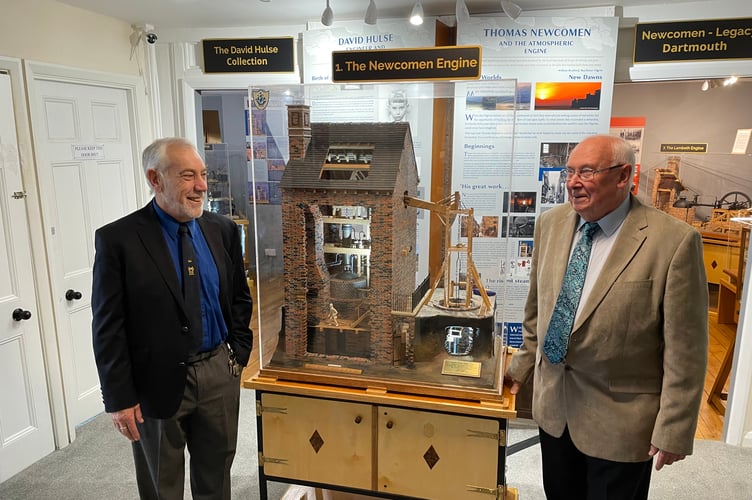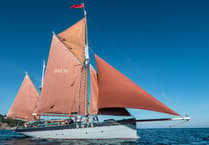Dartmouth Museum celebrated the opening of new exhibition honouring local legend Thomas Newcomen.
Over 100 guests and friends of David Hulse, the builder of the Thomas Newcomen exhibits, attended a launch event at the Flavel on Friday evening, as well as special guests, the Lord Lieutenant of Devon, and Anthony Mangnall, MP.
Thomas Newcomen, invented the first atmospheric engine in 1712, playing a key role in the industrial revolution, to revolutionise the local tin mining industry.
The exhibition was opened by the Lord Lieutenant of Devon, David Fursdon. He commented that community volunteering is a high priority for King Charles III and that this exhibition is an excellent example, as without the generosity of David Hulse or the efforts of the Museum volunteers, the exhibition would simply not have been possible. Hoping that it would play a part in reinstating Thomas Newcomen to his rightful place, as one of the key changemakers in our nation’s history.
The new exhibition features eight engines built by David Hulse to the finest detail. David spent 50 years building the replicas and the tools to build them: “Everything you see on that engine I have made, and I have made all the equipment to make the materials that I used. If you multiplied the size of the engine that you see down there by 16 you would have the exact thing, it is absolutely spot on.”
David said of his motivation to make this set of models: “I’ve always been interested in making mechanical devices. In 1974 I was searching for a suitable subject to construct in miniature and realised that there were no models in any museum in the British Isles or the world of 18th century engines made in the detail I was capable and intending to make them.
“The most important one is Thomas Newcomen’s engine, the world’s first commercial steam engine and it’d be very nice to give Thomas Newcomen the reward for such a momentous achievement.”
David spoke candidly about the significance of his models being housed permanently in Dartmouth: “It’s a right to our ancestors they’re honoured for what they have done and we don’t just take them for granted and the man that hanged the world was born here in Dartmouth, so where better should these engines be, it is the natural place for them.”
Chairman of Dartmouth Museum, Spencer Wigley, thanked David Hulse for his generous gift of eight outstanding models of early steam engines which featured at the centre of the new exhibition, which are sure to increase visitors to the museum. He emphasised that this new exhibition met one of the Museum’s main aims: to promote Dartmouth by shining a light on its rich history.
Mike Rowley, the Project Leader, said that David Hulse has innovative intelligence, scholarly achievement and practical skill, Mike went on to thank the project team for their unstinting efforts, the generous support of local businesses, providing materials and their time and Dartmouth Town Council for providing funds for the museum.
David added: “I should imagine we will come back and visit the museum, I don’t think there’s any doubt about it.”




